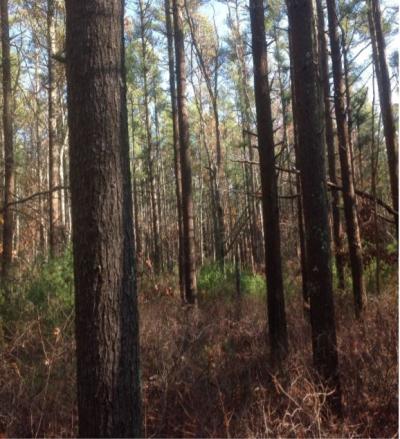Fearing Hill hearing continues despite Conservation Commission denial
To opponents of the long-debated Fearing Hill solar farm, Monday, Nov. 28’s Planning Board meeting seemed like a milestone.
Coming off the Conservation Commission’s Nov. 16 vote to deny a permit to the facility on environmental grounds, those who agree with the Commission’s assessment that the solar farm would pose a threat to wildlife and protected wetlands were not expecting the Planning Board to vote. They were, however, expecting the public hearing about the farm to finally be closed. That did not happen.
When Joe Shanahan, a representative of Wareham MA 3, LLC, the company behind the facility, announced plans to appeal the Conservation Commission’s decision to the state Department of Environmental Protection and Superior Court, those against the solar farm were frustrated but not surprised. The Planning Board voted to continue public hearing on the facility until March 6, 2023, dragging the discussion into its third year.
“I’ve got a 2023 calendar,” joked Planning Board Chairman Michael King. “Should I open my 2024?”
Shanahan said that the Conservation Commission gave him the impression that it would not release its report on the facility’s environmental impact until hydrogeologist Neal Price and engineer Charles Rowley finished their own report.
“We worked with Mr. Rowley and Mr. Price for six months to address comments,” Shanahan said, referring to concerns that the solar farm would pose a threat to wildlife and protected wetlands. “During those entire six months, the Conservation Commission continued the public hearing, meeting after meeting after meeting.”
In those circumstances, Shanahan said, the Board not granting a continuance would be “incredibly unfair.”
“If we keep this open for another 90 days,” Planning Board Vice Chair Carl Schulz said, “I don’t expect the flood of input and comment to abate. I don’t know how to process all that.”
“It’s been going on a long time, but what choice do we have?” King said. “The proponent has a right to contest the finding, and we have to wait on the sidelines.”
Associate Member Sherry Quirk agreed, recommending that the Board “stand back and see what the court and the state have to say.”
Schulz and Quirk suggested creating an organized list of documents from the years of Fearing Hill hearings, a long and difficult process due to their sheer number and diversity.
Opponents of the solar farm were also left feeling overwhelmed.
Hayes referenced “many new issues” regarding solar energy, such as the challenges of dismantling out-of-commission solar panels and the over 1,000 shipments of solar panels blocked from entering the United States due to suspicions that they were made with forced labor in China.
“It’s not simply challenging the Conservation Commission,” she said. “It’s so many more things for the public to consider.”














